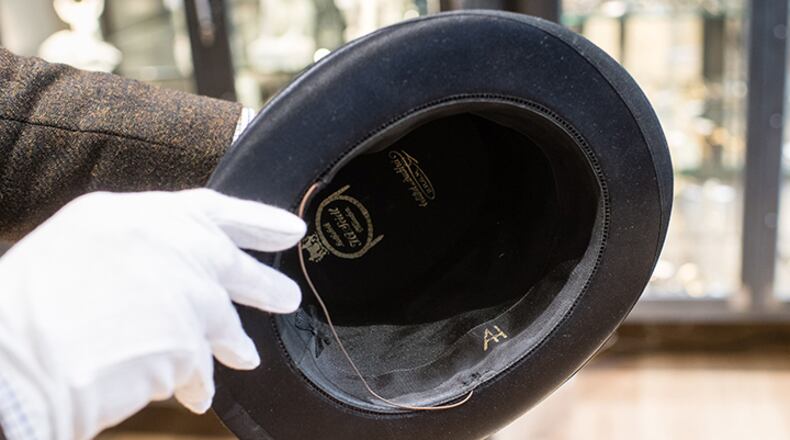The controversial sale of relics from Adolf Hitler took a generous turn this week when a wealthy Lebanese-Swiss businessman bought up more than $600,000 worth of items, then donated them to a Jewish group.
"I did it for humanity," Abdallah Chatila told CNN. "I just wanted to take them out of circulation."
Determined to keep them out of the hands of neo-Nazi groups whose members might glorify them, Chatila paid about $660,000 for the items, he told The Associated Press. Among them are Hitler's personal cigar box, a collapsible top hat worn by the evil dictator and a limited-print edition of "Mein Kampf" owned by German military leader Hermann Goring, according to CNN. In addition were handwritten letters from Hitler to a friend of his from childhood, and his assistant's typewriter, among other artifacts.
Chatila initially planned to destroy them, but then decided to donate them instead. So he contacted Keren Hayesod, an Israeli nonprofit that raises funds in Diaspora Jewish communities, according to The Times of Israel. He will send them sight unseen.
"I wanted to make sure that these pieces wouldn't fall into bad hands, to the wrong side of the story, so I decided to buy them," Chatila, who has lived in Switzerland for decades, told the AP.
"In these days, where tendencies of nationalism and anti-Semitism are growing in Europe, I would like to set an example with the means I have," he elaborated to CNN.
Chatila is among Switzerland's 300 wealthiest people, according to BBC News, with a fortune made "in diamonds and real estate in Geneva."
European Jewish Association Chairman Rabbi Menachem Margolin said he was "bowled over" by the gesture.
"As a Rabbi it is not often that I am lost for words," Margolin wrote to Chatila in a letter obtained by CNN. "Such a conscience, such an act of selfless generosity to do something that you feel strongly about, is the equivalent of finding a precious diamond in an Everest of coal. You have set an example for the world to follow when it comes to this macabre and sickening trade in Nazi trinkets."
The EJA plans to honor Chatila in January at a ceremony at Auschwitz, the concentration camp in Poland. He was also honored by the Conference of European Rabbis for his contribution, reported Arutz Sheva, Israel National News.
The businessman's purchase was just a fraction of the 147 Nazi-related items that were up for auction, out of more than 800 German historical collectibles dating from as early as 1919, BBC News noted.
About the Author
The Latest
Featured


